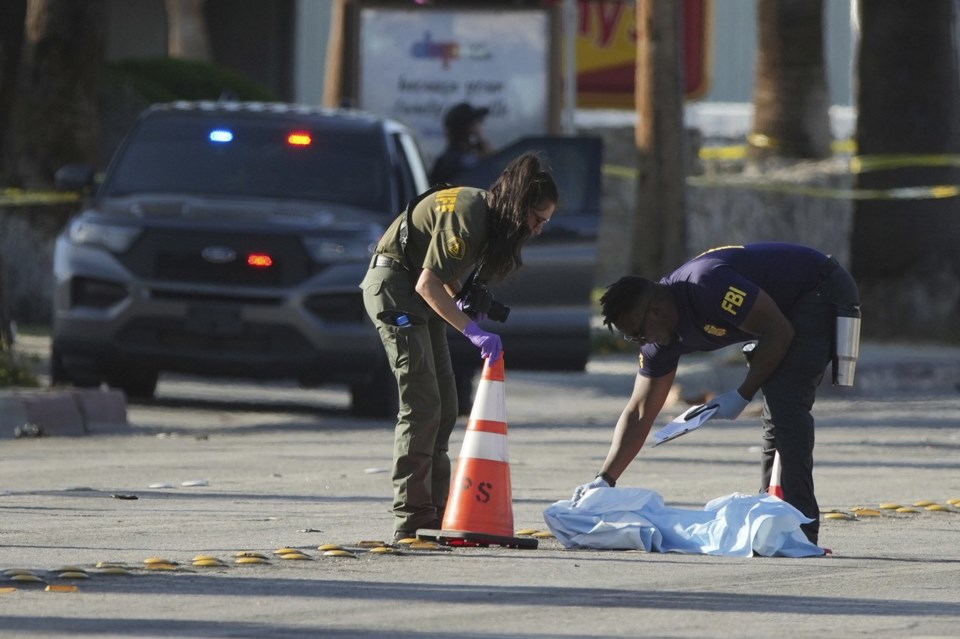LOS ANGELES (AP) — Investigators on Monday were combing through the writings of a 25-year-old man believed responsible for an explosion that ripped through a Southern California fertility clinic over the weekend.
The FBI identified Guy Edward Bartkus as the suspect in the apparent car bomb detonation Saturday that damaged the American Reproductive Centers building in Palm Springs, east of Los Angeles. Bartkus died in the explosion. None of the facility's embryos were damaged.
Authorities called the attack terrorism and said Bartkus left behind nihilistic writings that indicated views against procreation, an idea known as anti-natalism.
Here's what to know about the case.
Witnesses described a chaotic scene.
The blast gutted the clinic and shattered the windows of nearby buildings along a palm tree-lined street. Passersby described a loud boom, with people screaming in terror and glass strewn along sidewalks of the upscale desert city.
Bartkus' body was found near a charred vehicle.
Akil Davis, the assistant director in charge of the FBI’s Los Angeles field office, called it possibly the “largest bombing scene that we’ve had in Southern California.”
There were no patients at the facility and all embryos were saved.
“This was a targeted attack against the IVF facility,” Davis said Sunday. “Make no mistake: we are treating this, as I said yesterday, as an intentional act of terrorism.”
The investigation is ongoing.
Authorities executed a search warrant in Bartkus' hometown of Twentynine Palms, a city of 28,000 residents northeast of Palm Springs with a large U.S. Marine Corps base.
Bartkus tried to livestream the explosion, but the attempt failed, the FBI said.
Authorities haven't shared specifics about the explosives used to make the bomb and where Bartkus may have obtained them.
What were his views?
Authorities were working to learn more about Bartkus’ motives. They haven’t said if he intended to kill himself in the attack or why he chose the specific facility.
His writings communicated “nihilistic ideations” that were still being examined to determine his state of mind, said U.S. Attorney Bill Essayli, the top federal prosecutor in the area. In general, nihilism suggests that life is meaningless.
He appeared to hold anti-natalist views, which include a belief that it is morally wrong for people to bring children into the world. The clinic he attacked provides services to help people get pregnant, including in vitro fertilization and fertility evaluations.
Some people with extreme anti-procreation views have a lack of purpose and a bleak feeling about their own lives “and they diagnose society as suffering in a similar way that they are,” said Adam Lankford, a criminology professor at the University of Alabama. “Essentially, they feel like we're all doomed, that it's all hopeless.”
That hopelessness is a way for attackers to rationalize their violent actions, Lankford said Monday.
Christopher Weber, The Associated Press



